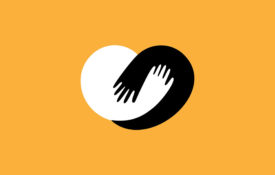-
Essential Trust: The Brain Science of Trust
What happens in your brain when you decide to trust someone? “When people make decisions to trust, it’s kind of the same as when they make decisions to gamble," Jamil Zaki says. "You see activities in the parts of the brain that are involved in its dopamine system that calculate on the fly, ‘Well, what does this gamble look like?’” In episode two of our special series “Essential trust," neuroscientists explain how our brains process trust, and why it's worth the risk. ...
-

Fear of Professional Backlash May Keep Women from Speaking Up at Academic Conferences
Women are less likely to ask questions during Q&A session at academic conferences. They may fear professional backlash, new research suggests.
-

Caregiving Across the Lifespan: Collected Psychological Science Research
From informal family caregivers at home to trained professionals in health care facilities, how caregivers act and behave can greatly impact the outcomes of those they care for.
-
The Anatomy of a Panic Attack
Panic attacks revolve around terror. Though people mainly associate them with the mind, they’re actually constellations of symptoms, both physical and cognitive. Your brain is seized by fear; your body responds, and it can be hard to make sense of it all. What is a panic attack? Most experts define a panic attack as a sudden onset of intense fear, as opposed to a condition like general anxiety, which usually manifests as almost constant worry. People having panic attacks are bombarded by mental and physical symptoms, which can vary from person to person. ...
-
We Could All Learn a Thing or Two From Fans of Lousy Sports Teams
When I attended a Washington Wizards open practice at D.C.’s Capital One Arena earlier this month, the focus was more on spectator entertainment than Rocky-style workouts. The season opener was a week away, and the players ran drills at half speed and engaged in silly skills competitions for fans, including a basketball version of Connect Four. But as a lifelong Wiz devotee, I was having an awestruck, love-you-man moment. Here I was posing for a photo with Phil freakin Chenier. Franchise royalty. My childhood idol. Back in the 1970s, when Chenier was draining jumpers and sporting a Richard Pryor mustache, the team routinely chased titles. These days? Not so much.
-
Stop Hurting Your Own Feelings: Tips on Quashing Negative Self-Talk
Do you ever hurt your own feelings? For me, it's a common occurrence. A curt reply to that thoughtful work email, zero responses to that happy hour invitation – little slights like these get my inner critic going. What a dumb thing to say! Of course they don't like you. Who do you think you are? This kind of negative self-talk can get in the way of creating strong relationships with ourselves and others. But there are ways to stop this spiral of thinking, says psychologist Ethan Kross. In moments of hurt or confusion, pause to consider other possibilities. ...

